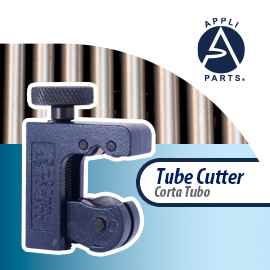What is HVAC and How it Works?
Have you ever heard the term HVAC but don't know what it means?
HVAC stands for Heating, Ventilation, and Air Conditioning.
This system is responsible for controlling the indoor climate of your house or office building. It consists of various components that work together to ensure that the temperature, humidity, and air quality are maintained at a comfortable level.
In this blog post, we'll explain what HVAC is, how it works, and why it's important.
Heating:
One of the primary functions of an HVAC system is to warm up the indoor space when it's cold outside.
The heating component of HVAC is most commonly a furnace or boiler.
The furnace burns fuel to produce heat, which is then distributed through ductwork and out of vents in your house or office.
Boilers, on the other hand, use hot water or steam to provide warmth.
The heat is then circulated through radiators or radiant floor systems.
Ventilation:
The ventilation component of HVAC is responsible for bringing fresh air into the building while removing stale air and pollutants.
This is crucial for maintaining good indoor air quality. The ventilation system includes fans, ductwork, and air filters.
The air filters trap airborne particles such as dust, pollen, and pet dander.
Proper ventilation helps to reduce the risk of respiratory problems, allergies, and asthma.
Air Conditioning:
The air conditioning component of HVAC is responsible for cooling the indoor space when it's hot outside.
It works by removing heat from the indoor air and transferring it to the outdoor environment.
This is achieved through a refrigeration cycle, whereby a refrigerant is circulated through the system, absorbing and releasing heat. The cooled air is then distributed through ductwork and out of vents.
Thermostat:
The thermostat is the brain of the HVAC system.
It's responsible for regulating the temperature and controlling all of the components of the system.
The thermostat works by sensing the indoor temperature and comparing it to the desired temperature.
If the indoor temperature is too high or too low, the thermostat signals the HVAC system to turn on and off.
Why is HVAC important?
HVAC is important for a variety of reasons.
Firstly, it helps to maintain a comfortable indoor environment.
Nobody wants to live or work in a space that's too hot, too cold, or stuffy.
Secondly, it helps to keep indoor air clean and healthy. Proper ventilation helps to eliminate harmful pollutants, thereby reducing the risk of respiratory illnesses.
Lastly, HVAC can also help reduce energy consumption and save money on utility bills.
Efficient HVAC systems can reduce heating and cooling costs by up to 30%, making it a worthwhile investment.
In conclusion, HVAC plays a critical role in maintaining a comfortable and healthy indoor environment.
By understanding how it works and the importance of proper maintenance, you can ensure that your HVAC system operates at peak efficiency.
Be sure to change air filters regularly, schedule routine maintenance checks, and upgrade to more energy-efficient models, if necessary.
Contact a professional HVAC technician for any repairs or installations.
By investing in your HVAC system, you're investing in the comfort and wellbeing of your home or business.




